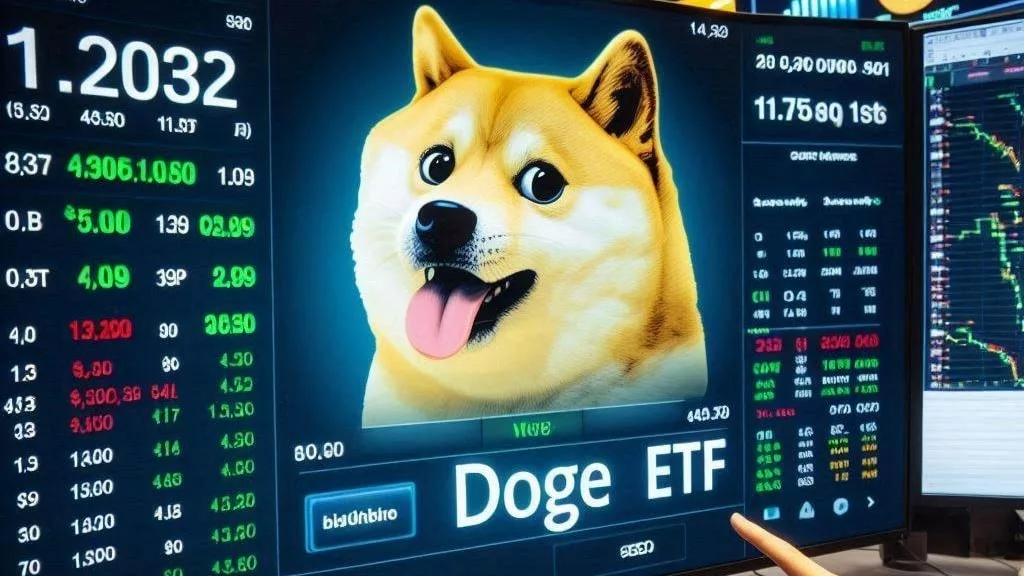
In a much-anticipated debut, the first day of trading for futures-based Ethereum exchange-traded funds (ETFs) got off to a slow start. Nine ETFs offering exposure to ether futures entered the market on Monday, with varying strategies and investment goals. While some investors eagerly embraced this new asset class, overall trading volume left much to be desired.
Five of these ETFs are dedicated solely to ether futures, while the remaining four take a diversified approach, encompassing both bitcoin and ether futures. Among these, Valkyrie’s Bitcoin Strategy ETF (BTF), which had operated as a bitcoin-only fund for approximately two years, is altering its strategy to include ether exposure. The rest of the ETFs introduced are entirely new to the market.
Bloomberg ETF analyst Eric Balchunas succinctly described the initial trading volume, stating, “Pretty meh volume for the Ether Futures ETFs as a group.” This lukewarm response highlights the cautious optimism with which investors have approached these innovative investment vehicles.
One of the new ETFs that garnered significant attention on its debut was VanEck’s Ethereum Strategy ETF (EFUT). It traded nearly 25,000 shares, with an average price hovering around $17 per share, resulting in a total dollar volume of just $425,000. The market’s response to EFUT serves as an indicator of the mixed sentiment surrounding these new offerings.
Despite the slow start, these ETFs are poised to play a pivotal role in the evolving cryptocurrency landscape. As the market adapts to this new asset class, it’s essential to delve deeper into what these ETFs represent, their potential benefits, and the factors influencing their reception among investors.
Understanding Ethereum Futures ETFs
Ethereum Futures ETFs are investment funds that offer exposure to the price movements of ether, the native cryptocurrency of the Ethereum blockchain, through futures contracts. Unlike traditional ETFs, which invest directly in assets like stocks or bonds, these ETFs gain exposure to ether by trading futures contracts on regulated futures exchanges.
Futures contracts are agreements to buy or sell an asset at a predetermined price on a specified date in the future. In the context of Ethereum Futures ETFs, these contracts allow investors to speculate on the future price of ether without owning the underlying cryptocurrency. This distinction can be appealing to investors seeking exposure to cryptocurrencies without the complexities of direct ownership.
Mixed Sentiment Among Investors
The initial response to these ETFs has been marked by a degree of caution. While some investors view them as an exciting new avenue for participating in the crypto market, others remain wary of their complexities and potential risks.
One reason for this tepid response could be the relatively low trading volume and limited assets under management (AUM) observed on the first day of trading. In contrast, the launch of Bitcoin Futures ETFs in the past generated considerable excitement and substantial trading activity.
Additionally, the decision of Valkyrie’s Bitcoin Strategy ETF (BTF) to pivot from a bitcoin-only strategy to include ether highlights the growing recognition of the importance of diversification within the crypto space. Investors are becoming increasingly aware of the need to balance their crypto portfolios to manage risk effectively.
The Potential Benefits of Ether Futures ETFs
While the initial reception may have been subdued, there are several potential benefits associated with Ethereum Futures ETFs that could attract investors in the long run.
Factors Impacting Future Performance
The future performance and acceptance of Ethereum Futures ETFs will depend on several factors:
In conclusion, the debut of Ethereum Futures ETFs has been met with a cautious response, with relatively low trading volume on the first day. However, these innovative investment vehicles offer the potential for diversification, accessibility, and regulatory oversight, which could make them an attractive option for investors seeking exposure to the crypto market.
As the market becomes more accustomed to these ETFs and regulatory clarity improves, their acceptance and trading activity may grow. Investors and market participants will closely monitor these developments to assess the long-term impact of Ethereum Futures ETFs on the broader cryptocurrency landscape.




Get the latest Crypto & Blockchain News in your inbox.